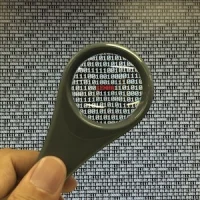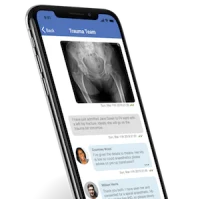More healthcare facilities are implementing a protocol for
mobile device use as hacking threatens data security and pressure on internal
Wi-Fi networks rises.
According to communications firm Spok, in order to address these issues the majority of hospitals are devising and implementing regulations on use of mobile devices within their four walls.
As well as keeping a tight rein on security, hospitals are trying to harness the technology for their operational benefit.
Spok has been surveying healthcare facilities and organisation on mobile device use for the past five years.
This year’s survey has shown 63 percent of organisations have a specific plan in place for mobility. This figure represents a 34 percent rise since 2012. The increase indicates that hospitals see the necessity for supervising and monitoring onsite mobile device use.
With staff accessing confidential patient data on their own unprotected devices and strain on facility Wi-Fi networks by patients and visitors, formalised systems are becoming the norm.
Boosting Communication
The survey found that many hospitals have implemented provisions aimed at boosting communication.
Priorities for improving internal communication through mobile device use include the following:
- Bettering physician-to-physician communications (78 percent);
- Nurse-to-physician communications (78 percent);
- Critical test results management (74 percent);
- ER/bed turnover (68 percent).
In-house pagers are still widely used and are supported by
71 percent of surveyed facilities, smartphones are the most popular with 78 percent
of facilities supporting use. Wi-Fi phones, used most widely by nursing
staff, have risen in popularity this year with nearly 70 percent of healthcare facilities
supporting them.
Tablet use was in use by only 54 percent of hospitals this year.
See Also: Staff Download Malware Every Four Seconds
BYOD
Bring Your Own Device (BYOD) use has dropped this year owing to concerns about data protection. In the past, neatly 88 percent of facilities allowed staff to use their own mobile phones and tablets for work but this year this plummeted to 58 percent.
Staff most commonly allowed to use BYOD were doctors (89 percent of organisations surveyed), administrators (75 percent), IT staff (66 percent) and nurses (50 percent).
Respondents said the four chief reasons they allowed BYOD use were:
- Cost savings;
- Workflow time-saving for users;
- Improved care team communication;
- Physician demand.
Sensitive Data
Hospitals are creating policies around use of critical data bases with mobile devices. The top systems and applications staff access via mobile devices are:
- EHR systems (62 percent surveyed);
- Directory lookup (62 percent);
- Drug reference (59 percent);
- On-call schedules (57 percent);
- Secure texting apps (52 percent).
Spok said that vendors were making the products more mobile friendly in response to the trends in use. This will enable healthcare to integrate mobility into workflow, boost productivity and improve patient care.
Source: Healthcare Business Tech
Image Credit: cio.com










